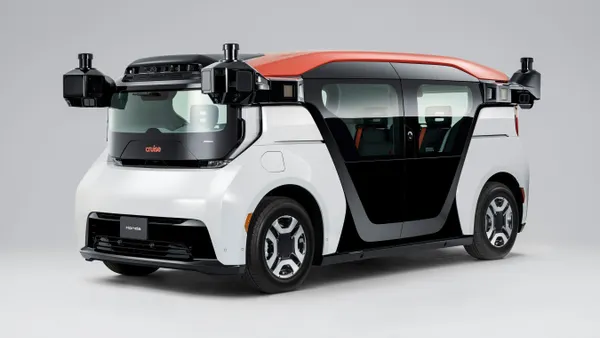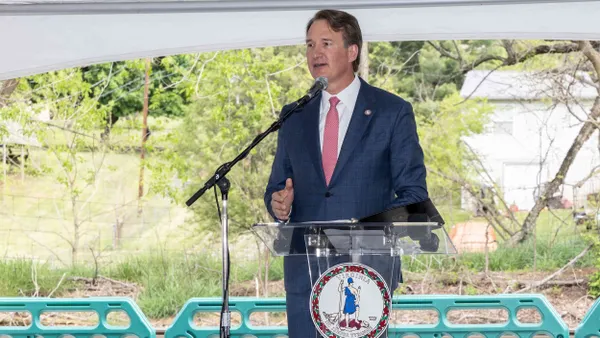Dive Brief:
- Monthly wages for Uber and Lyft drivers fell by 53% between 2013 and 2017, according to a new study from the JPMorgan Chase Institute. That means driving is less likely to replace a full-time job, even among the most engaged drivers, the researchers found.
- The study analyzed payments into 2.3 million account holders' Chase bank accounts from different online platforms, and found monthly earnings in the transportation sector had fallen from $1,469 in 2014 to $783 in 2017.
- Other sectors of the online platform economy saw earnings rise. Non-transport work — like dog walking or repair — saw a 2% increase in monthly earnings over four years. Users of leasing apps including Airbnb and Trulio had a 69% increase in monthly earnings, up to $1,736 from $1,030. Overall, monthly earnings from the online platform economy were up 20%, the report found.
Dive Insight:
There are many possible explanations for the drop in drivers’ wages, which occurred as the number of drivers rose. It could reflect that more drivers are choosing to work part-time, or that an increase in drivers is pushing down hourly wages overall. The study was based on deposits to bank accounts, which meant researchers couldn't extract hourly data.
In a statement to MarketWatch, Uber said the study reinforces the sentiment that “the growth in on-demand work is driven, in large part, by people who use platforms like Uber on the side.” Lyft, likewise, said that a study of hourly earnings “would have shown stable driver earnings in recent years.” A July study from the Economic Development Research Group released by Uber found nine out of 10 of its drivers were using it to supplement other income, and that they were earning more than they were before starting with Uber.
The report comes amid increased scrutiny from cities into how the “gig economy” is treating its employees. New York City last month became the first city to cap ride-hailing and is requiring that companies provide drivers a minimum wage of $17.22 an hour, to combat poverty among drivers (Lyft and Uber have argued they already pay a living wage). Chicago is discussing its own ride-hailing regulations, and aldermen there are pitching higher pay mandates, while Seattle is also discussing a rate hike to send more money back to drivers.
The fact that drivers may not — or cannot — do the work full time throws a wrench into those discussions; the editorial board of the Chicago Tribune wrote that a minimum wage "turns ride-share work into what many drivers don’t want: regimented hourly work."










